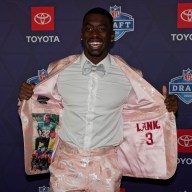SEOUL, South Korea – Former President Bill Clinton urged North Korea to free detained South Koreans and make progress on the issue of abducted Japanese citizens, South Korean and Japanese officials said Thursday.
Clinton made the requests to North Korean leader Kim Jong Il during a rare meeting in Pyongyang earlier this week that secured the freedom of two U.S. journalists detained for 140 days for allegedly entering the North illegally, the officials said.
North Korea has been holding a South Korean worker at a North-South joint industrial zone since late March for allegedly denouncing its communist regime. Last week, the North also seized a South Korean fishing boat with four fishermen after it accidentally strayed into northern waters.
South Korean Foreign Ministry spokesman Moon Tae-young said he understood that Clinton conveyed to North Korea that the South Korean worker and fishermen “should be released on humanitarian grounds.”
Moon said South Korea hasn’t heard how the North Koreans reacted.
South Korea said Thursday it had no plan to send a special envoy to North Korea to try to win their freedom, but it still hopes for their timely release.
In Tokyo, Chief Cabinet Secretary Takeo Kawamura told reporters that “Clinton urged Kim Jong Il to make progress” on the issue of abducted Japanese nationals. He cited an unidentified senior U.S. government official as the source of the information.
In 2002, North Korea admitted to abducting 13 Japanese nationals in the 1970s and 1980s and using them to train spies. North Korea allowed five to return to Japan, saying the other eight had died. But Tokyo wants a deeper investigation.
In Washington, State Department spokesman Robert A. Wood declined to discuss whether Clinton had interceded with Kim to free detained South Koreans and to make progress on the issue of abducted Japanese citizens.
However, Wood said, “He was not carrying any messages on the part of American officials.”
Wood said Clinton’s trip to North Korea was a private, humanitarian mission.
Nevertheless, Clinton’s trip has rekindled concerns among some in South Korea and Japan that the two countries could be marginalized as Pyongyang favours direct talks with Washington on its nuclear program.
North Korea has quit six-nation disarmament talks and instead recently suggested one-on-one negotiations with Washington to defuse the nuclear tensions.
The U.S. has said it is willing to hold direct talks with Pyongyang – but only on the sidelines of the six-nation nuclear talks consisting of the U.S., the two Koreas, China, Japan and Russia.
Moon dismissed concerns about being sidelined, noting the U.S. informed the South that Clinton’s private trip was aimed at securing the freedom of the two U.S. journalists.
Kawamura also stressed that according to the senior U.S. official, Clinton did not discuss North Korea’s nuclear issue with Kim.
















